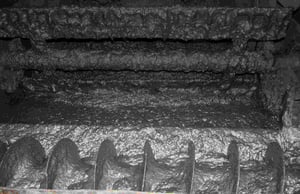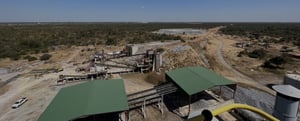Real Estate Credit Investments plc (LON:RECI) is the topic of conversation when Hardman and Co’s Analyst Mark Thomas caught up with DirectorsTalk for an exclusive interview.
Q1: Your recent report sits behind a disclaimer. What can you tell us about that?
A1: It is just the standard disclaimer that many investment companies have. In essence, for regulatory reasons, there are some countries (like the US) where the report should not be read. It is not a simple asset class, and the report should only be looked at by professional/qualified investors.
Q2: You called your piece Customer repayments show strength of franchise. What can you tell us about it?
A2: The key messages from Real Estate Credit Investments’ November 2020 quarterly investor update, its interim results reported end-November, and end-December factsheet remain unchanged.
Firstly, RECI’s asset selection and management make it defensive to COVID-19 and other recessionary risks.
Second, its customer base is robust with continued interest and principal repayments (£100m+ since March).
Third, lower-risk, higher-margin new business is available as mainstream banks remain cautious. This has led to stable dividends (3p every quarter) with a yield of 8.5%, the highest amongst peers. The discount to NAV has reduced by two thirds over recent months and if investors were to anticipate the recovery in bond MTM or a housebuilder writeup, it would be a trigger for the discount to close further, or the shares to go to a premium to NAV, in line with RECI’s January 2020 rating.
Q3: So, can you tell us some more about its defensiveness?
A3: The NAV is ca.17p below the February level but realised losses are just 1.7p, 10% of this, reflecting Cheyne’s strong credit assessment and security. Some borrowers have extended facilities (at higher interest rates) but we understand that all borrowers are paying in full and on time on their (revised) terms.
Looking at the NAV fall, 10p was MTM losses on bonds where RECI has consistently stated it expects to receive full recovery in due course because of the strength of its borrowers. To date, further equity has been injected into projects by the borrowers, which supports this assertion. March also saw a write-down on a mezzanine loan to a UK housebuilder (equating to 5.4p per share).
Since that time, the UK housing market has been strong, assisted by government support. This has seen very strong share price reactions from UK-listed housebuilders. Assuming RECI were to reflect this trend in its housebuilding valuation, a reversal of the write-down would appear probable.
However, we note that there remains uncertainty on the market outlook, the asset is still being developed, and no sale is imminent. This writeup is not in our numbers yet.
Q4: And the £100m cash received?
A4: Despite all the market uncertainties since 31 March 2020, RECI has received over £100m in loan repayments, interest, and coupons, including five loans that have been fully or partially repaid. This should give investors confidence in the strength of RECI’s borrowers.
By way of example, in November, RECI saw the full repayment of a small loan to support the development of a student housing asset in Bologna (realised IRR was ca.21%) and a further partial repayment of £11.5m on the £20.0m commitment to the London Office to Residential loan.
In October, RECI saw i) the final repayment of £19.4m from the loan backed by a London mixed-use development (its third-largest position at the time) with the realised IRR on this deal was approximately 11%, and ii) two partial principal repayments of £5m.).
The message is that high quality borrowers are continuing to make repayments even on commercial real estate lending.
Q5: And why is new business being priced at better margins and with improved security?
A5: We believe bank appetite to lend to commercial real estate is low and is likely to remain low for some time. This reflects the large losses seen by many in previous downturns and the associated heavy capital charge such lending now incurs. While banks typically have centres of expertise, their business model does encourage lenders to “own” their lending, and their limit structure does not give flexibility to lenders.
We believe banks have significantly retrenched to the lowest LTV, and the safest income sub-sectors, leaving a material number of good-quality borrowers unable to access finance. This has been most noticeable in the bond book, where yields have more than doubled since February, and LTV has come down by nearly 10ppts.
Q6: …and the dividend?
Real Estate Credit Investments maintained its dividend through 2020. For a time, it was uncovered but interest income alone now covers it and as noted, we expect some capital gains. The yield, at nearly 9%, is the highest amongst peers by some margin.








































